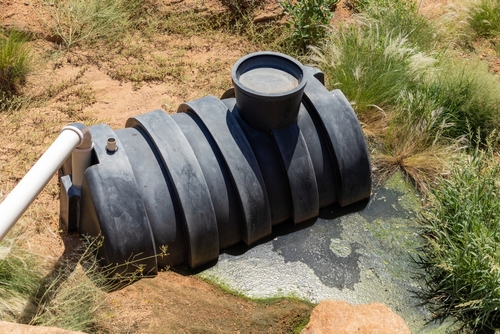
Septic tanks play a vital role in managing household waste by treating sewage and wastewater before it is released into the environment. These underground structures are designed to separate solids from liquids, allowing bacteria to break down organic matter and treat the wastewater effectively. Bacteria are the unsung heroes of septic tanks, as they are responsible for carrying out the majority of the treatment process. In this blog, we will explore the important role bacteria serve in septic tanks and how they contribute to the overall functionality of these systems.
1. Introduction to Bacteria in Septic Tanks:
Bacteria are microscopic organisms that play a crucial role in the decomposition and treatment of organic matter in septic tanks. These microorganisms are naturally present in sewage and wastewater and work to break down organic material, such as food particles, human waste, and other pollutants. Without bacteria, the waste in septic tanks would not be effectively treated, leading to a buildup of solids and potential contamination of groundwater and soil.
2. Types of Bacteria in Septic Tanks:
There are two main types of bacteria that are responsible for the treatment of sewage in septic tanks: aerobic bacteria and anaerobic bacteria. Aerobic bacteria require oxygen to survive and thrive in well-aerated environments, such as septic tanks with proper ventilation. These bacteria are more efficient at breaking down organic matter and produce less odor compared to anaerobic bacteria.
On the other hand, anaerobic bacteria do not require oxygen and can survive in low-oxygen environments, such as the bottom of septic tanks. These bacteria are responsible for breaking down complex organic compounds and converting them into simpler substances, such as carbon dioxide and methane. While anaerobic bacteria are less efficient than aerobic bacteria, they play a critical role in the overall treatment process in septic tanks.
3. Role of Bacteria in Decomposition:
Bacteria in septic tanks feed on organic matter, including proteins, fats, carbohydrates, and other pollutants present in sewage and wastewater. These microorganisms break down complex organic compounds into simpler substances through a process called decomposition. During decomposition, bacteria release enzymes that help break down organic matter into smaller molecules, which are then further digested by other bacteria.
As bacteria break down organic material, they release nutrients and gases that are essential for the treatment process. Nutrients such as nitrogen, phosphorus, and potassium are released during decomposition, which can be used by plants and other organisms in the environment. Gases such as carbon dioxide and methane are also produced during decomposition, which can be released into the atmosphere or used as energy sources.
4. Nutrient Removal by Bacteria:
In addition to breaking down organic matter, bacteria in septic tanks play a crucial role in nutrient removal. By digesting organic material and converting it into simpler substances, bacteria help remove excess nutrients, such as nitrogen and phosphorus, from sewage and wastewater. These nutrients can be harmful to the environment if released in high concentrations, as they can cause eutrophication and algal blooms in water bodies.
Through a process called denitrification, bacteria convert nitrate into nitrogen gas, which is then released into the atmosphere. This helps reduce the amount of nitrogen in the water and prevents water pollution. Phosphorus removal is also achieved through the precipitation and sedimentation of phosphorus compounds by bacteria, helping to protect water quality and aquatic ecosystems.
5. Odor Control by Bacteria:
One of the common issues associated with septic tanks is the production of foul odors caused by the decomposition of organic matter. Bacteria in septic tanks play a crucial role in odor control by breaking down organic material and reducing the production of volatile compounds that cause unpleasant smells. Aerobic bacteria, in particular, are effective at reducing odor production by promoting the decomposition of organic matter in a well-aerated environment.
By maintaining a healthy population of bacteria in septic tanks, homeowners can reduce the risk of odor issues and ensure that their septic systems operate efficiently. Regular maintenance, such as pumping and inspecting the septic tank, can help promote the growth of beneficial bacteria and prevent odor problems from occurring.
Summary
Bacteria serve a crucial purpose in septic tanks by breaking down organic matter, removing nutrients, controlling odors, and treating wastewater effectively. These microscopic organisms play a vital role in the overall functionality of septic systems and help protect the environment from pollution and contamination. By understanding the important role bacteria play in septic tanks, homeowners can take steps to ensure that their septic systems operate efficiently and effectively. Regular maintenance, such as pumping, inspecting, and treating the septic tank, can help promote the growth of beneficial bacteria and maintain the health of the system for years to come.
Need Septic Contractors in Bethel, OH?
Gullett Sanitation Services, Inc. offers mobile de-watering of sludge and slurries in and around Bethel, OH, utilizing Roediger belt filter presses, as well as services and repairs on all major brands of home aeration systems. We also work with jet aeration and cleaning for sewer system lines (up to 8 inches in diameter), permits and consultation for biosolids, the transportation of non-hazardous wastewater, sludge removal from all types of waste lagoons, service and repairs on residential sewer systems, and the removal of grit, rags, and debris from anaerobic or aerobic digesters. Give us a call today and let us be your septic and dewatering service in Ohio!
